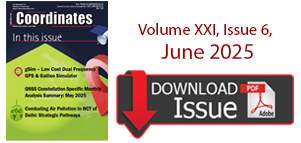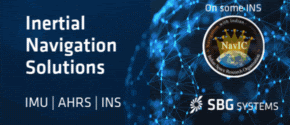| Galileo Update | |
GALILEO UPDATE
Arianespace launches four new Galileo satellites for ESA
An Arianespace-operated Ariane 5 rocket has launched four more satellites under the European Space Agency’s (ESA) Galileo.
Launched from Europe’s spaceport in French Guiana, the satellites have extended Europe’s ability in satellite-based navigation.
A total of 14 satellites under the Galileo programme were initially launched using the Soyuz Fregat rocket. ESA Galileo programme and navigation-related activities director Paul Verhoef said: “Now that we can rely on the powerful Ariane 5, we can anticipate the quicker completion of Galileo deployment, permitting the system to enter full operation.”
Two more Ariane 5 missions of the programme are also planned to be launched over the next two years. www.aerospace-technology.com
European Commission, GSA issue third call for Galileo, EGNOS R&D contracts
The European Commission (EC) has opened the third round of competition for €33 million (US$35.15 million) in Horizon 2020 (H2020) contracts for development of European GNSS (EGNSS) applications exploiting use of Galileo and the European Geostationary Navigation Overlay Service (EGNOS).
The third call targets four topics aimed at supporting innovative applications, products, feasibility studies, and market tests that “can have a substantial effect on development of European innovation know-how and economy.” The categories and funding amounts are:
• GALILEO-1-2017: EGNSS Transport applications, €14.5 million
• GALILEO-2-2017: EGNSS Mass market applications, €9 million • GALILEO-3-2017: EGNSS Professional applications, €8 million
• GALILEO-4-2017: EGNSS Awareness raising and capacity building, €1.5 million. The deadline for submitting applications in March 1, 2017.
According to the European GNSS Agency, which is managing the call for bids, to maximize the adoption of Galileo and EGNOS, the third Horizon 2020 call focuses on the development of user-oriented, downstream applications. Priority is also given to projects capable of stimulating the competitiveness of the European GNSS downstream industry.
Proposals for EGNSS transport applications covering the aviation, road, maritime and rail market segments should be built on exploitation of the EGNSS signals and operational advantages, implementation of EGNSS based pilot projects and end-to-end solutions, standards, certifi cation, legal and societal acceptance; and exploitation of synergies with other positioning and navigation systems and techniques.
EGNSS mass-market applications should foster the adoption of EGNOS and Galileo in such areas as the Internet of Things, smart cities, emergency services, and commercial and “social location-based services” (LBS). Proposals should make the best use of European GNSS features that improve performances in urban environments; multi-constellation, fusion with other positioning techniques; authentication services of Galileo, and techniques to optimize power consumption.











 (No Ratings Yet)
(No Ratings Yet)






Leave your response!